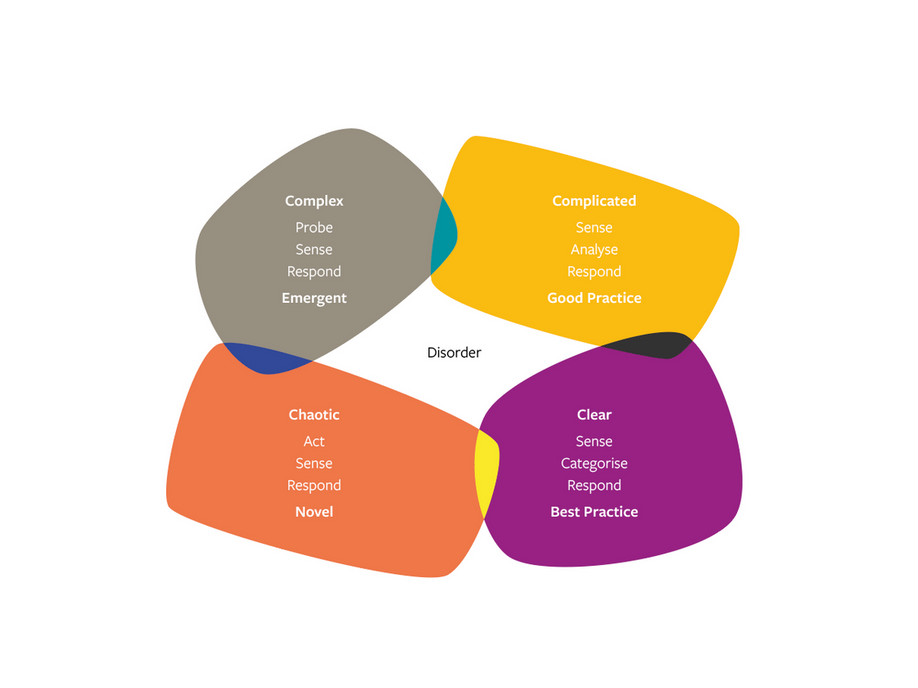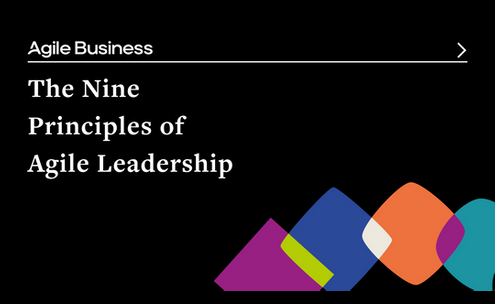Principle 2: Improved quality of thinking leads to improved outcomes
Mindfulness; complexity thinking; taking time
Agile leaders value high-quality thinking which will result in meaningful action. Agile leaders view problems from many different angles. They take input from those closest to the problem, and this goes some way to ensuring that they are in touch with reality rather than relying solely on electronic information to inform their decision-making. This also means allowing thinking time and focusing on the highest priorities at any given time.
Take time
One of the main complaints in many organisations is that there isn’t enough time. As a result, people don’t give themselves adequate time to digest information between meetings as they rush from one to another.
This lack of time affects the organisation in many ways; one of the key impacts of rushing is that many people go about the business of solving problems in exactly the ways that they have done in the past. However, the world in which business operates today is much more complex than ever before. Today the activities of problem solving and decision making require much more thought, both diagnosing the problem and then crafting the solution.
The agile leader embraces two complementary approaches:
Mindful leading
Principle 1 states that part of the agile leader’s development is to become a mindful leader. There are many advantages for leaders adopting a mindful approach3. One is slowing down and building an awareness of “what is” happening rather than “what I think” is happening. Focusing attention more fully and completely on the external world (as opposed to the inner world of thoughts, emotions, and sensations) builds greater awareness of themes, emergent patterns, coincidences and so on.
Organisations that embark on mindfulness programmes develop leaders who have:
- Improved focus, concentration and clarity
- More resilience and self confidence
- A more accepting attitude
- Increased self-control and ability to engage
- Enhanced communication and relationship skills
- Better decision-making abilities
As a result, mindful leaders develop empathy with their teams and the ability to inspire trust.
Cynefin framework
Achieving a state of mindfulness allows a leader to see what type of problem needs to be solved: simple, complicated, complex or chaotic as defined by the Cynefin framework. The diagram shows the Cynefin framework.

This framework helps leaders to understand the context within which they seek to solve their problem and how to react accordingly. For instance, the right-hand quadrants are ordered, they are cause and effect relationships. Simple cause and effect is where the solution is self evident, predictable and repeatable.
By contrast, the complicated problem requires much thought and analysis because the solution isn’t self-evident.
The left-hand quadrants are the unordered types of problems. Complex problems are not governed by cause and effect relationships as the results are quite often unrepeatable. Chaotic problems, like complex ones, are unordered but are also unpredictable.
As the diagram shows, the context of any problem has to be approached differently. For instance, change management as practiced in many organisations tends to follow the approach of Sense-Analyze-Respond. This approach relies on experts who understand the problem and can predict outcomes based on deep thinking. This approach is flawed if applied to the complex domain where there are too many unknowns. Instead, the complex problem should be tested with many experiments (probing) to help move from unknown responses to known ones, i.e. to move parts of the problem back into the complicated space which has more predictability. This approach is in line with an agile process to change as it recognises that “shift happens”.
Thinking habits that get in the way
While frameworks can be useful to guide thinking, leaders must also be aware that thinking can become habit-based. Such patterns of thinking often go undetected as they occur outside of the conscious mind.
Taking time and having a more mindful approach to problem solving and decision making is a hallmark of agile leadership. By taking time, focusing on agreed priorities and approaching a problem from multiple perspectives, the agile leader has the best chance of making the right decision – as well as giving them the opportunity to identify and change any thinking patterns that might impede performance in themselves and in others.
Frameworks are useful but don’t get stuck in them!
Sources
- Institute for Mindful Leadership - www.instituteformindfulleadership.org
- Leader’s Framework for Decision Making - 2)Snowden, D. & Boone, M. A - Harvard Business Review (November 2007)
- Research into mindfulness - Institute for Mindful Leadership has shown mindfulness to improve focus, personal productivity, performance under pressure, employee satisfaction, ability to prioritise
Author

Agile Business Consortium
The Agile Business Consortium is the professional body for business agility. We’re all about community – whether you’re a multinational working through a large-scale transformation, a new start-up, or a contractor, we can support you to achieve more, to grow more, and to build your business agility. As a global not-for-profit organisation that’s been around for over 25 years, our knowledge and experience around agile competencies and behaviours can offer you the guidance you need to reach your agility goals. Together with our partners, we create and share agile research, case studies, resources and tools that help you compete in today’s uncertain world. A registered not-for-profit, we’re the world’s longest-standing agile-orientated organisation. We’re the brains behind AgilePM®, AgileBA®, AgilePgM®, AgilePfM™ and AgileDS™. Based in the UK, we have members in over 30 countries around the world.
Email: [email protected]
- Twitter:
- @Agile_Biz
- Website:
- www.agilebusiness.org
- LinkedIn:
- https://linkedin.com/company/agile-business-consortium


